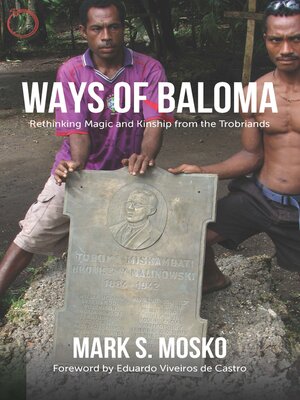Ways of Baloma
ebook ∣ Rethinking Magic and Kinship From the Trobriands · Malinowski Monographs
By Mark S. Mosko

Sign up to save your library
With an OverDrive account, you can save your favorite libraries for at-a-glance information about availability. Find out more about OverDrive accounts.
Find this title in Libby, the library reading app by OverDrive.



Search for a digital library with this title
Title found at these libraries:
| Library Name | Distance |
|---|---|
| Loading... |
Bronislaw Malinowski's path-breaking research in the Trobriand Islands shaped much of modern anthropology's disciplinary paradigm. Yet many conundrums remain. For example, Malinowski asserted that baloma spirits of the dead were responsible for procreation but had limited influence on their living descendants in magic and other matters, claims largely unchallenged by subsequent field investigators, until now. Based on extended fieldwork at Omarakana village—home of the Tabalu "Paramount Chief"—Mark S. Mosko argues instead that these and virtually all contexts of indigenous sociality are conceived as sacrificial reciprocities between the mirror worlds that baloma and humans inhabit.
Informed by a synthesis of Strathern's model of "dividual personhood" and Lévy-Bruhl's theory of "participation," Mosko upends a century of discussion and debate extending from Malinowski to anthropology's other leading thinkers. His account of the intimate interdependencies of humans and spirits in the cosmic generation and coordination of "life" (momova) and "death" (kaliga) strikes at the nexus of anthropology's received wisdom, and Ways of Baloma will inevitably lead practitioners and students to reflect anew on the discipline's multifold theories of personhood, ritual agency, and sociality.
Informed by a synthesis of Strathern's model of "dividual personhood" and Lévy-Bruhl's theory of "participation," Mosko upends a century of discussion and debate extending from Malinowski to anthropology's other leading thinkers. His account of the intimate interdependencies of humans and spirits in the cosmic generation and coordination of "life" (momova) and "death" (kaliga) strikes at the nexus of anthropology's received wisdom, and Ways of Baloma will inevitably lead practitioners and students to reflect anew on the discipline's multifold theories of personhood, ritual agency, and sociality.







